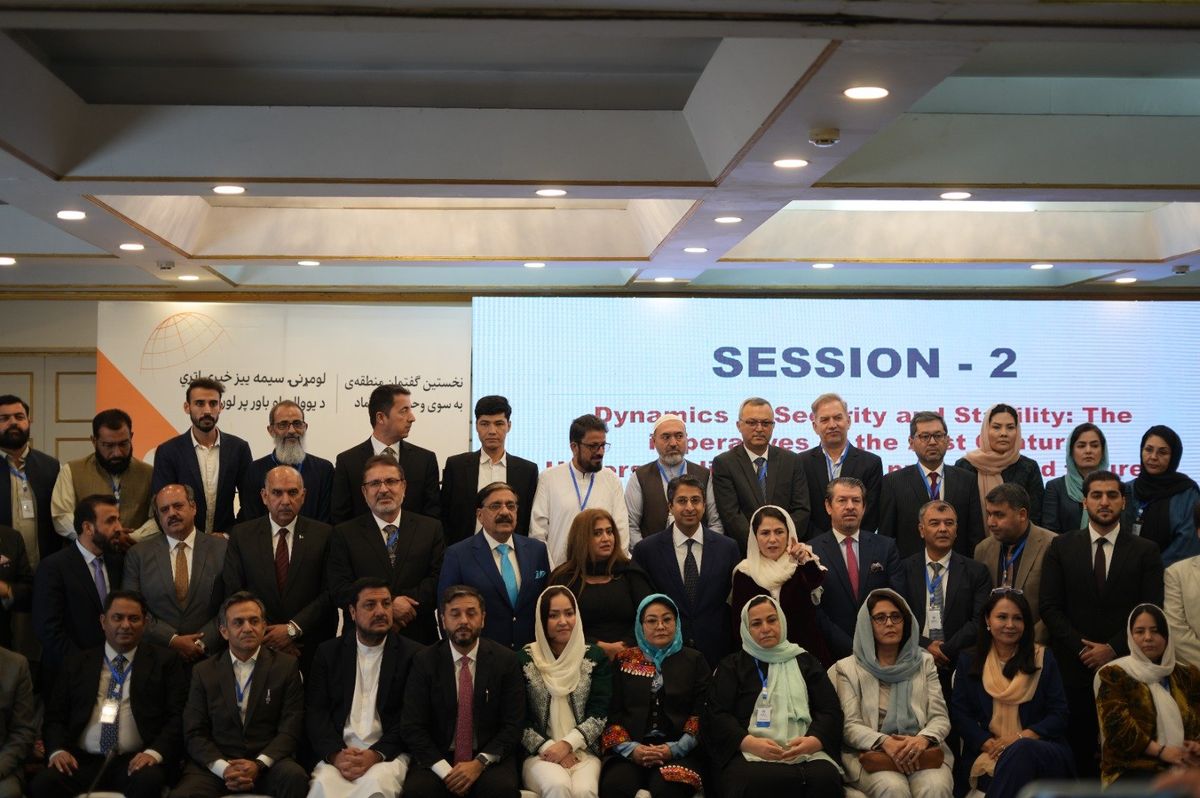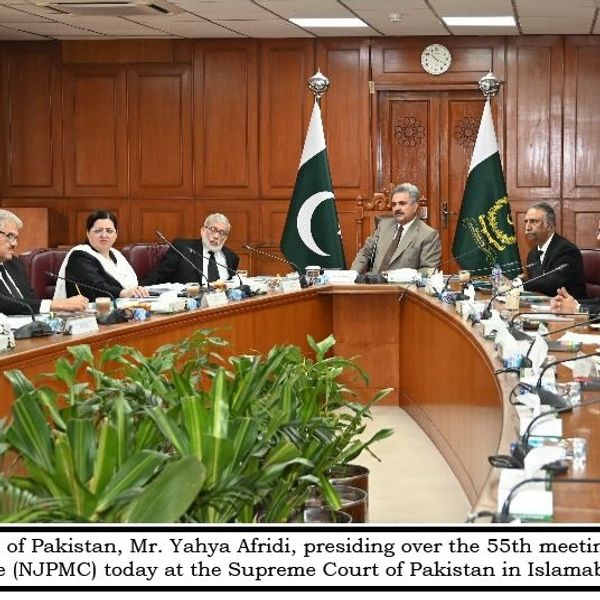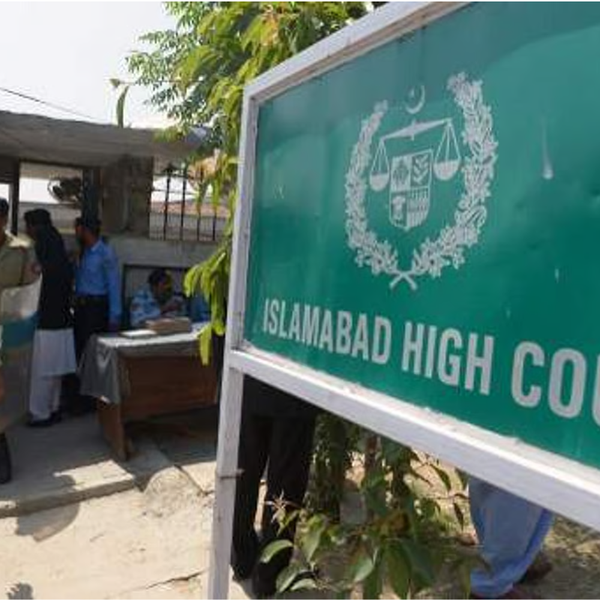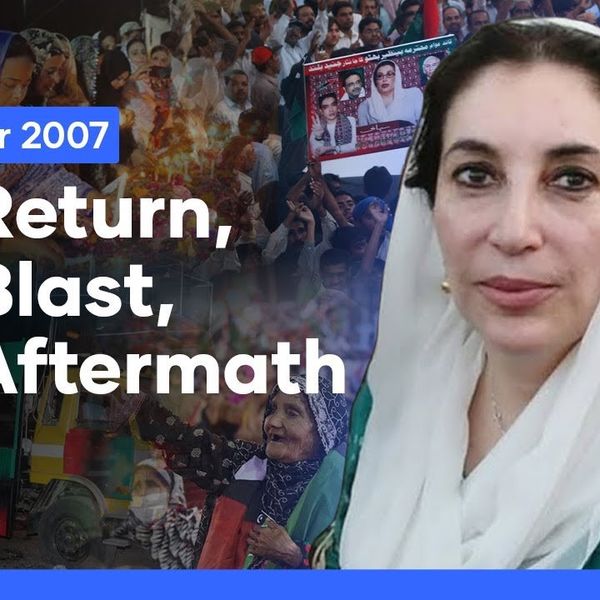Taliban missing as Afghan opposition voices gather in Pakistan
Though unofficial, the high-profile Islamabad event and absence of Taliban representatives hinted at tacit Pakistani approval

Asma Kundi
Producer, Islamabad
Asma Kundi is a multimedia broadcast journalist with an experience of almost 15 years. Served national and international media industry as reporter, producer and news editor.

Organizers underscored a people-centric vision, stressing that “peace between people leads to peace between nations.”
Nukta
Opposition figures from Afghanistan gathered in Pakistan's capital Islamabad to discuss the status of women, ways to explore new channels for dialogue, and address cross-border tensions.
"Our sisters and daughters remain confined at home, denied access to schools, universities, and education," said former Afghan parliamentarian Aman Ullah Paiman.
"This is a huge problem and will become even more dangerous in the future. As an Afghan, I do not accept the current situation - 99% of Afghans are against the Taliban.
"We want to work with neighboring countries to find a solution; otherwise, the risks will only grow,” he said, at the two-day event held on September 29-30.
The event, organized by rights group Women for Afghanistan and Islamabad-based think tank South Asian Strategic Stability Institute (SASSI), brought together dozens of Afghan opposition leaders, including Fawzia Koofi, who was nominated for the Nobel Peace Prize.
Members of the Pakistani civil society also participated at the event.
Voices from the ground
Although not directly sponsored by the Pakistani government, the event’s high-profile staging in Islamabad suggested at least tacit official approval. The absence of Taliban representatives, despite the presence of prominent anti-Taliban voices, fueled speculation about Pakistan’s strategic intent.
A participant, who did not wish to be named, told Nukta: “Engagement with neighbors like Pakistan is crucial for Afghanistan’s future. But the Taliban are not those who can be brought to the table. They have cut off internet access in parts of Afghanistan, leaving women and girls unable to work online or pursue education.”
Mansoor Ahmed Khan, Pakistan's former ambassador to Kabul, emphasized continuity in Islamabad’s approach.
“Pakistan has always engaged with all Afghan groups, parties, and factions to foster dialogue. From 2001 to 2021, we repeatedly told the international community that negotiating with the Taliban was essential for lasting peace. Civil society efforts like this dialogue should not be seen as anti-Taliban or a shift in state policy. Pakistan continues to engage with the Taliban government while keeping open channels with other Afghan stakeholders.”
Retired Maj. Gen. Inam Ul Haque, an Islamabad-based defense analyst, echoed the need for broad engagement.
“Engagement is always positive - we should talk both to the Islamic Emirate and the Afghan diaspora.
"Why the Taliban didn’t attend this dialogue, I can’t say, but Pakistan’s interest lies in communication. Even in conflict, talks must continue. Without engaging the Afghan government, issues like terrorism, refugees, and border security cannot be resolved," he said.
On the Afghan refugee issue, he rejected criticism of Pakistan’s policies.
“I disagree with the view that Pakistan acted inhumanely. Those who arrived after August 2021, many undocumented or with criminal records, were systematically repatriated after multiple deadline extensions. Pakistan is not a signatory to the 1951 Refugee Convention; sheltering Afghans was done out of Islamic values and neighborly responsibility.”
He added that Afghan refugees did benefit during their stay in Pakistan.
“Girls went to schools, families received healthcare, and they accessed media and education. This was Pakistan’s investment in Afghanistan’s future and will improve bilateral ties in the long run.”
Since November 2023, Pakistan has deported around 1.3 million individuals, according to official figures. In June, the government announced its decision to also deport 1.4 million Afghan refugees holding Proof of Registration (PoR) residence permits causing panic in the community.
Broader context
Pakistan, long accused of backing the Taliban to counter Indian influence, is now grappling with intensifying violence at home linked to the Tehreek-e-Taliban Pakistan (TTP). The dialogue’s emphasis on security and cooperation hinted at Islamabad’s desire to engage a broader set of Afghan voices to tackle cross-border threats.
The timing added further complexity. The dialogue followed U.S. President Donald Trump’s recent comments about reclaiming Bagram Air Base, underscoring Afghanistan’s strategic importance near China’s borders.
Analysts suggested the forum might align, indirectly, with Western interests in countering Taliban dominance - allowing Pakistan to test alternative channels without formally shifting its policy.
China, heavily invested in Afghanistan through the Belt and Road Initiative and the China-Pakistan Economic Corridor, is expected to watch cautiously. Beijing prefers stability under Kabul’s current rulers to safeguard its projects, and the focus on anti-Taliban figures may unsettle those calculations.
Meanwhile, Pakistan’s defense pact with Saudi Arabia in September has bolstered Islamabad’s regional standing. The pact commits both nations to joint deterrence and could strengthen Pakistan’s confidence in hosting such initiatives, particularly around shared security threats like the TTP and Baloch separatists.










Comments
See what people are discussing